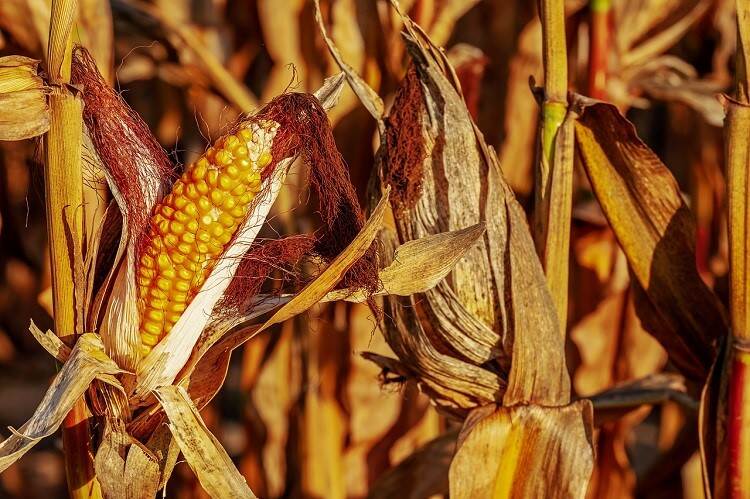Bulgaria's sharp decrease in summer crops yields and production
Producers and traders postpone yet another year their wheat sales waiting for higher prices. With the summer crops harvesting season ended, it is now safe to say that the immensely negative forecasts for Bulgarian crop this year has, unfortunately, turned into reality. The hottest and driest summer on record led to a sharp, double-digit slump in yields and production for both corn and sunflower seeds, with corn being especially severely affected. Given that Bulgaria is among the key EU exporters in both commodities, it is expected that these declines would be able to impact the overall market environment in the region, especially in sunflower seeds.

Corn yields halved compared to 5-year average
Corn yields slid 35% on annual basis and 50% compared to the 5-year average to 2,73 t/ha. With the area also contracting 5%, harvested corn this season is 38% lower than in 2023 - almost 1,4 million tonnes. Even at this early stage, as of end of October, exported quantities are just about 8400 tonnes – only 7% of the shipped volumes during the same period last year. Stocks are 1,4 million tonnes – 27% less than in 2023.
The climate challenge
Summer crops provided substantially higher profit margins, compared to the traditional winter wheat, and therefore, grain producers are steadily increasing areas. In addition, Bulgaria created large corn and sunflower seed processing capacity, turning the country from a raw commodity exporter to a key supplier of higher value-added processed corn and oilseed products. However, with the changing climate, summer seasons in Bulgaria are trending drier and hotter, representing a growing challenge for producers.
The pipe ahead for summer crops
While they achieved substantial progress in terms of climate adaptation – more suitable seed varieties and growing techniques like no-till, irrigation remains the biggest limiting factor that makes them vulnerable to adverse summer heat. Throughout the 90s and 00s, substantial part of the base irrigation infrastructure deteriorated or has been completely decommissioned, which led to irrigated area nowadays being just of fraction of what it used to be, including in key summer crops production areas. This is the reason why rebuilding base irrigation infrastructure is the leading priority of Bulgarian Ministry of Agriculture and Food in its domestic policies. Bulgaria has ambitions plans to quadruple its irrigated area in the upcoming years. If realized, summer crops will be among the biggest beneficiaries with potential for a major production leap, that could put Bulgaria even firmer on the European grains and oilseeds map.
Bulgarian producers and traders stock their wheat
Unlike the summer crops, Bulgaria enjoyed another abundant wheat crop in 2024 – almost 6,8 million tonnes harvested. However, the story for wheat producers this year has been double-sided. Global oversupply and normalizing regional supply chains, after the initial war in Ukraine disruptions, are keeping prices relatively low, which incentivized Bulgarian producers and traders to refrain from selling. As of end of October, they were keeping 4,6 million tonnes in storage – representing 68% of the 2024 crop and some 12% higher than the same period an year ago. The figure is just 7% shy of the 2022 record stock pace. This market behavior has become popular in the last 10-15 years, peaking in 2022, when after grain prices spiked following the Russian invasion in Ukraine, Bulgarian producers and traders decided en masse to hold their crop. To only sell at much lower price levels next spring, forced to clean their silos prior the new harvest. Therefore, similar selling spree might be also expected throughout Q2 of 2025.
Data sourced from Ministry of Agriculture and Food’s Operational Analyses (BG)